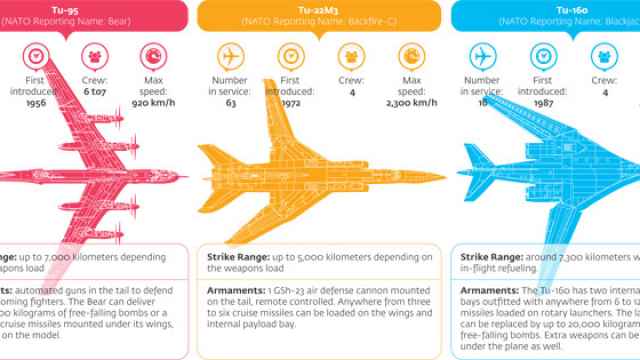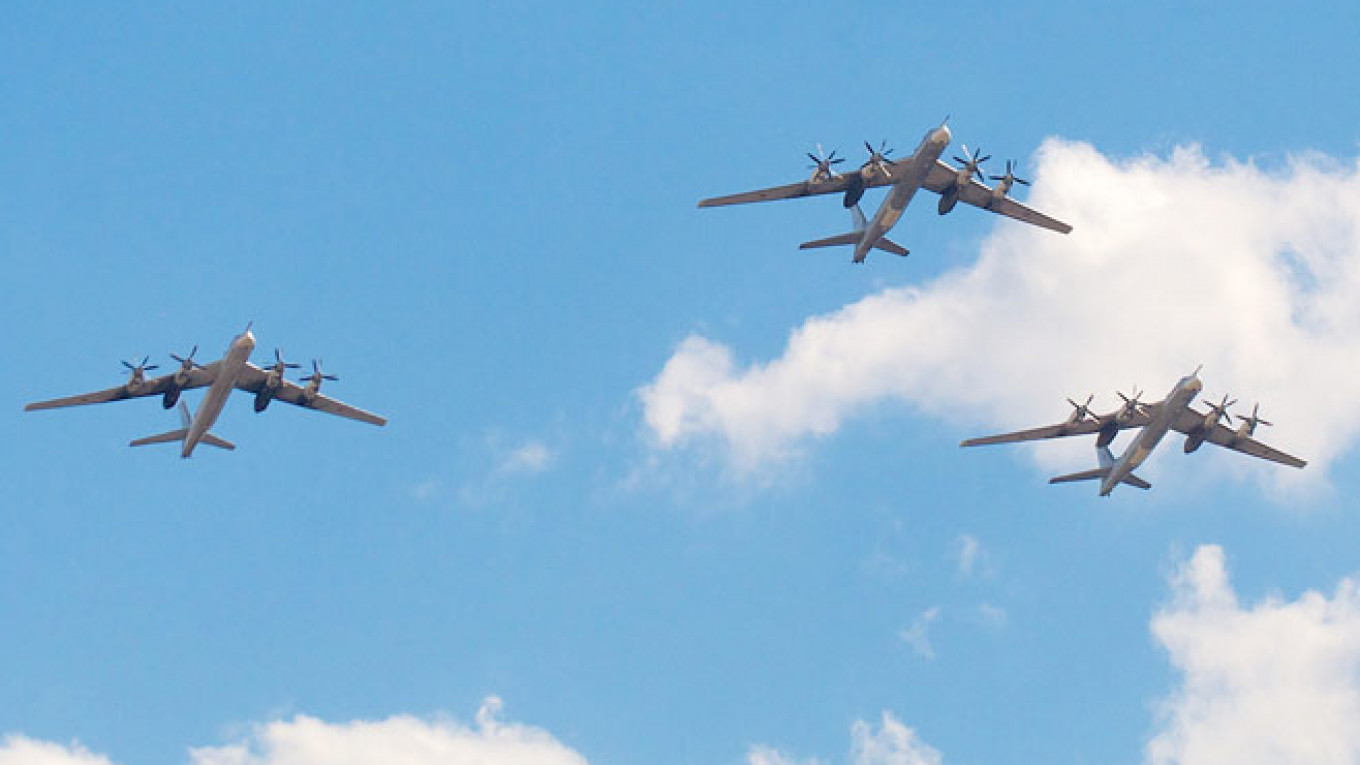Russia is gradually being drawn into an extended campaign in Syria. Over the past month, the military has deployed new aircraft, new air defense systems, and is reportedly moving into two previously unused Syrian airbases to increase its support for the embattled regime in Damascus.
Although the additions have been relatively minimal — falling well in line with Defense Ministry claims that Russian operations will remain limited to the air ?€” they have already outpaced the? short-term engagement sold to the Russian public two months ago.
But no battle plan survives contact with the enemy, as the saying goes, and Russia is now reacting to unforeseen developments on the ground. Namely, the failure of Russia's initial deployment to decisively influence events on the ground in favor of Syrian President Bashar Assad.
"The endgame is the same," said Yury Barmin, a Russian political analyst. "Moscow wants the Assad regime to survive, and is willing to invest a lot of money and effort into the operation and in the uncertain future of the Assad government."
Russia initially deployed just 30 fighter aircraft and 20 attack helicopters to a Syrian airbase in the regime-held Latakia region, but in the first six weeks of operations ?€” from Sept. 29 to Nov. 16 ?€” Assad forces only regained 0.4 percent of lost territory, according to defense consultancy IHS Jane's.
On Nov 17, Russia upped the ante. Flying out of an airbase in southern Russia, large long-range strategic bombers took to the skies and fired cruise missiles at what the Defense Ministry described as Islamic State targets in the northwestern provinces of Aleppo and Idlib.
The decision to introduce strategic bombers into the mix was nominally a response to the downing of a Russian passenger plane over Egypt's Sinai Peninsula, an act eventually classified by the Federal Security Service as a terrorist attack.
"This indicates that Russia's endgame in Syria has evolved over the course of the air campaign," said Vladimir Frolov, a Russian military and international affairs expert. "Russia is no longer angling for a quick exit from Syria, and is recognizing that it is in [the war] for the long haul."

Russia's Long-Range Strategic Bombers Now Flying Over Syria
View in higher resolution here.
In the wake of last month's terror attacks in Paris, Russia has been pursuing cooperation with France and gaining leverage with the U.S.-led Western coalition operating in Syrian airspace. It is also expanding its political objectives to include blocking Turkey out of the conflict altogether.
In response to Turkey's downing of a Russian Su-24 fighter-bomber on the Turkish-Syrian border, Moscow has increased its air defenses in Syria, including the deployment of S-400 systems to the Latakia airbase ?€” giving Russia air defense coverage that blankets most of Syria.
Russian bombers are now escorted by Russian Su-30 fighter jets armed with air-to-air missiles, and helicopters are reportedly conducting sorties from the two new airbases in northwestern Syria
"Moscow is now making attempts to retaliate against Ankara on the ground through attacks on Turkish-backed groups and by destroying Turkey's plans for a no-fly zone in northern Syria,"? Barmin said.
"While before the incident Russia was trying to cozy up to Turkey and persuade it to keep Assad in power at least temporarily, now it is likely trying to sideline [Turkish President Recep] Erdogan at [eventual] Syria talks," the analyst said.
To sideline Turkey ?€” perhaps even fighting a proxy war against Turkey by bombing Turkmen rebels in northwestern Syria ?€” while pursuing military cooperation with the Western coalition, will require a longer stay in Syria, especially given Assad's slow progress to regain lost territory.
While there have been unconfirmed reports of Russian T-90 tanks being deployed beyond the boundaries of the Latakia airbase, where they have been deployed in an ostensibly defensive capacity, Moscow is not yet committing to a ground operation. However, its air campaign may continue to expand as new airbases are brought online.
"So far, Russia is not overextending itself and can [sustain] the costs, both financially and casualty wise ?€” the deployments are still limited and sustainable," said Vladimir Frolov, a Russian international affairs expert. "But the drift in political objectives for the war is alarming, indicating that there is no thought-through exit strategy," he said.
Contact the author at m.bodner@imedia.ru
A Message from The Moscow Times:
Dear readers,
We are facing unprecedented challenges. Russia's Prosecutor General's Office has designated The Moscow Times as an "undesirable" organization, criminalizing our work and putting our staff at risk of prosecution. This follows our earlier unjust labeling as a "foreign agent."
These actions are direct attempts to silence independent journalism in Russia. The authorities claim our work "discredits the decisions of the Russian leadership." We see things differently: we strive to provide accurate, unbiased reporting on Russia.
We, the journalists of The Moscow Times, refuse to be silenced. But to continue our work, we need your help.
Your support, no matter how small, makes a world of difference. If you can, please support us monthly starting from just $2. It's quick to set up, and every contribution makes a significant impact.
By supporting The Moscow Times, you're defending open, independent journalism in the face of repression. Thank you for standing with us.
Remind me later.


